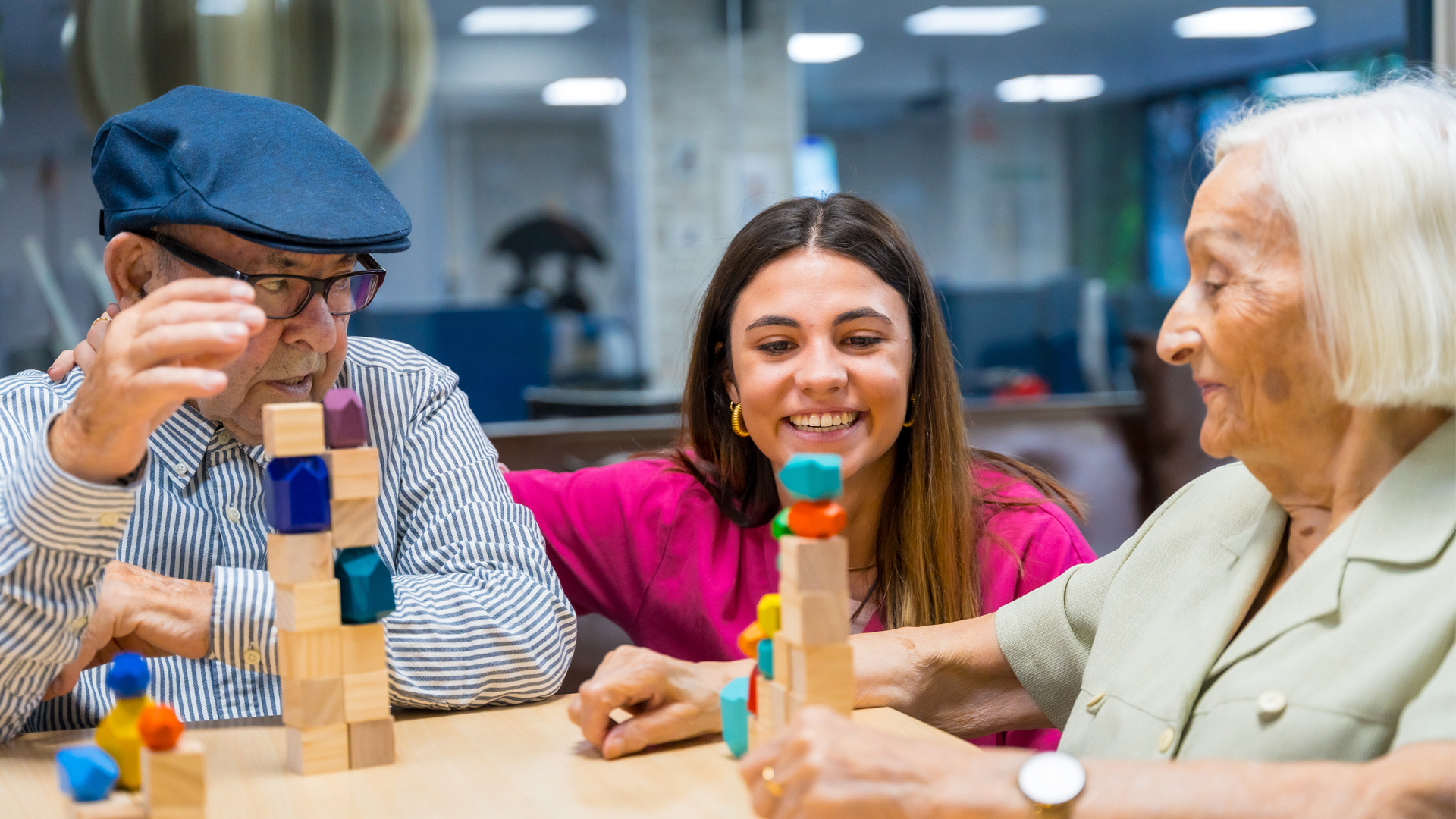People with dementia gradually lose their ability to remember important information, learn new things, and understand their environment, which can lead to confusion, disorientation, anxiety, and agitation. When the world around them no longer makes sense, your loved one may become confused and ask you the same questions repeatedly. Here are some ways you can respond.
1. Stay Calm
If your loved one becomes agitated or suspicious, getting angry, raising your voice, or dismissing their concerns will not help the situation. Instead, take a deep breath, do your best to learn what is frustrating them, and be compassionate. Use reassuring phrases like “You’re safe here” and “I’ll stay with you until you feel better.”
You can also calm someone with dementia by giving them an outlet for their nervous energy. Invite them to take a walk, listen to music, or join you in another activity to engage them and divert their attention away from the source of their strong emotions.
2. Offer Respect and Validation
Being respectful can foster effective communication between you and your loved one. Even more importantly, guard their dignity. Though dementia can cause some childlike behaviors, your loved one is an adult. Belittling or talking down to them may lead to hurt feelings and cause unnecessary tension in your relationship.
Delusional beliefs are a symptom of middle- and late-stage dementia. Though these may not align with your perception of reality, you can be supportive and validate their feelings without encouraging the delusions. The easiest way to do this is to ask gentle questions in response to the things they tell you. Try saying things such as “Tell me more about that” or “What is that like for you?”
3. Limit Distractions
Dementia causes brain damage that makes it progressively harder for people to express thoughts and complete simple tasks. Distractions can be overwhelming to someone who is already struggling to sort through the confusion. Another way to calm someone with dementia is to make their home a more peaceful place. Eliminate noises, bright lights, crowds, and clutter, which can be difficult for your loved one to block out.
Limiting distractions for yourself will also benefit you as a caregiver by making you more present and aware. If your attention wanders elsewhere, you may be missing precious moments with your loved one. See if providing your undivided attention reduces agitation.
4. Keep Things Familiar
Any changes in their surroundings, circumstances, or routine can be extremely upsetting for people with dementia. They may feel unsafe or threatened by unfamiliar things. For this reason, some families may decide to help their loved ones stay at home for as long as possible. If this is the path you choose, you can trust our experienced caregivers to come to them and provide dependable companionship.
At Legacy Homecare LA, our Care Companions are always ready to help you and your family navigate the stages of dementia. Let our team remove triggers that can cause agitation, fear, and delusions while easing daily living activities. Most importantly, our caregiving team prioritizes treating your loved one with honor and compassion. To learn more about what we can do for you, contact us today.






